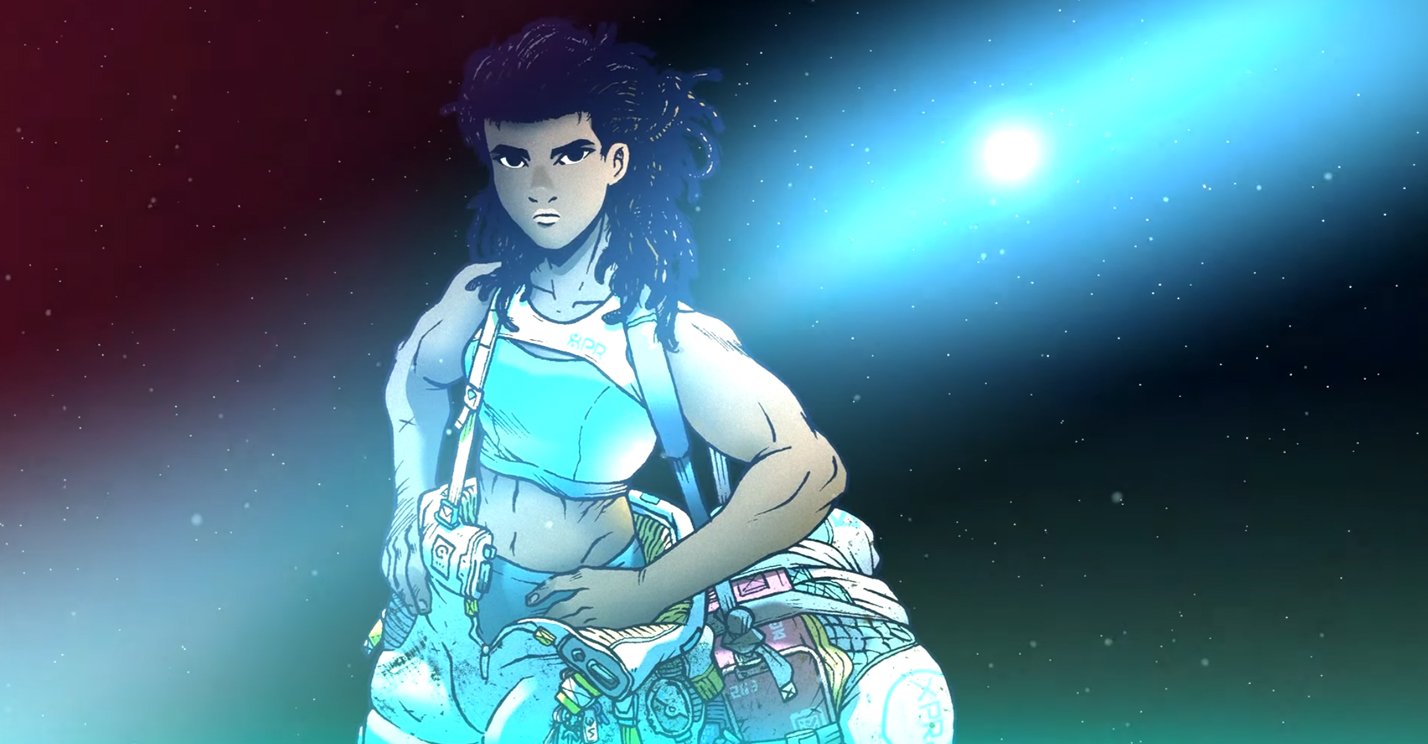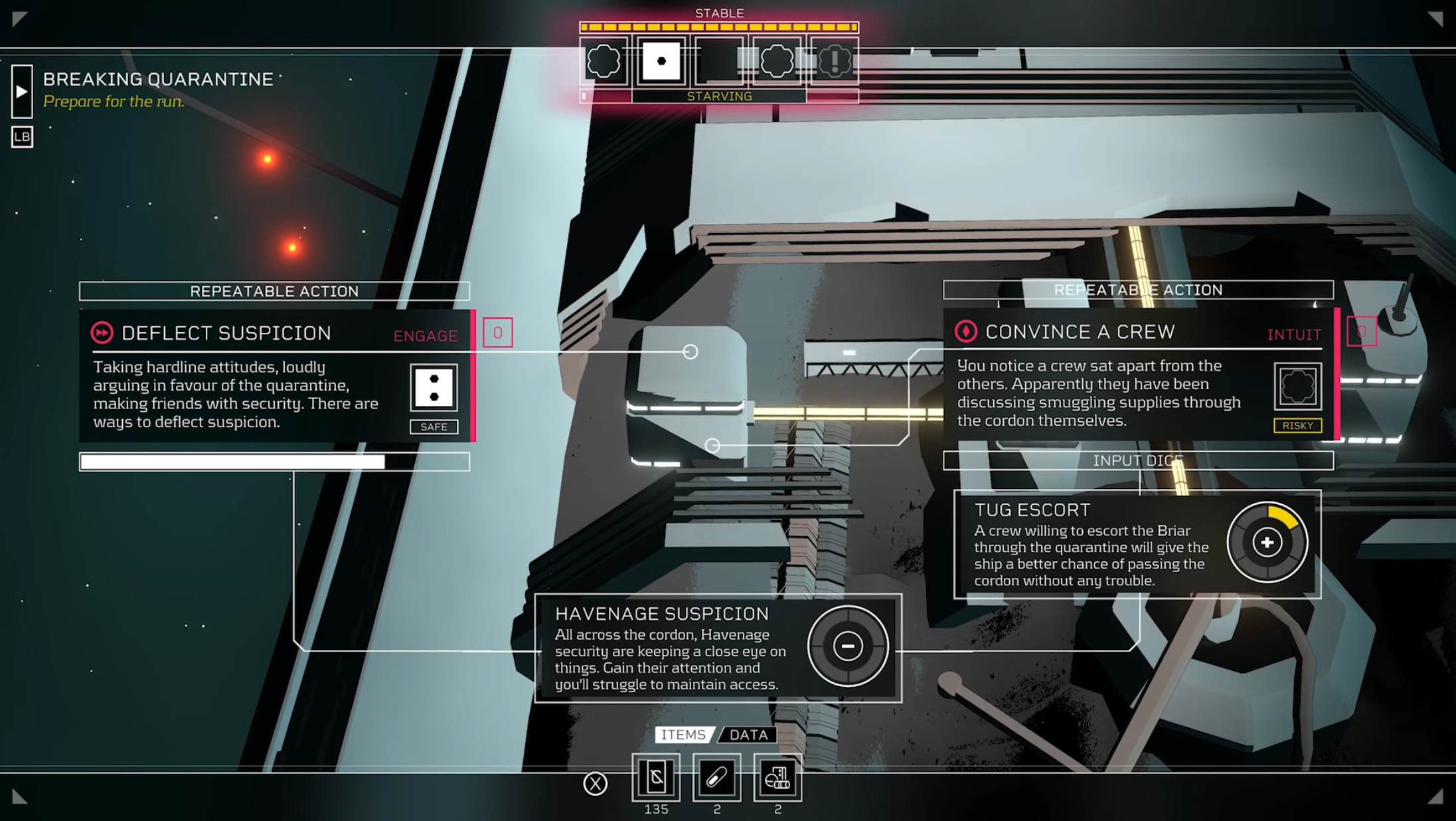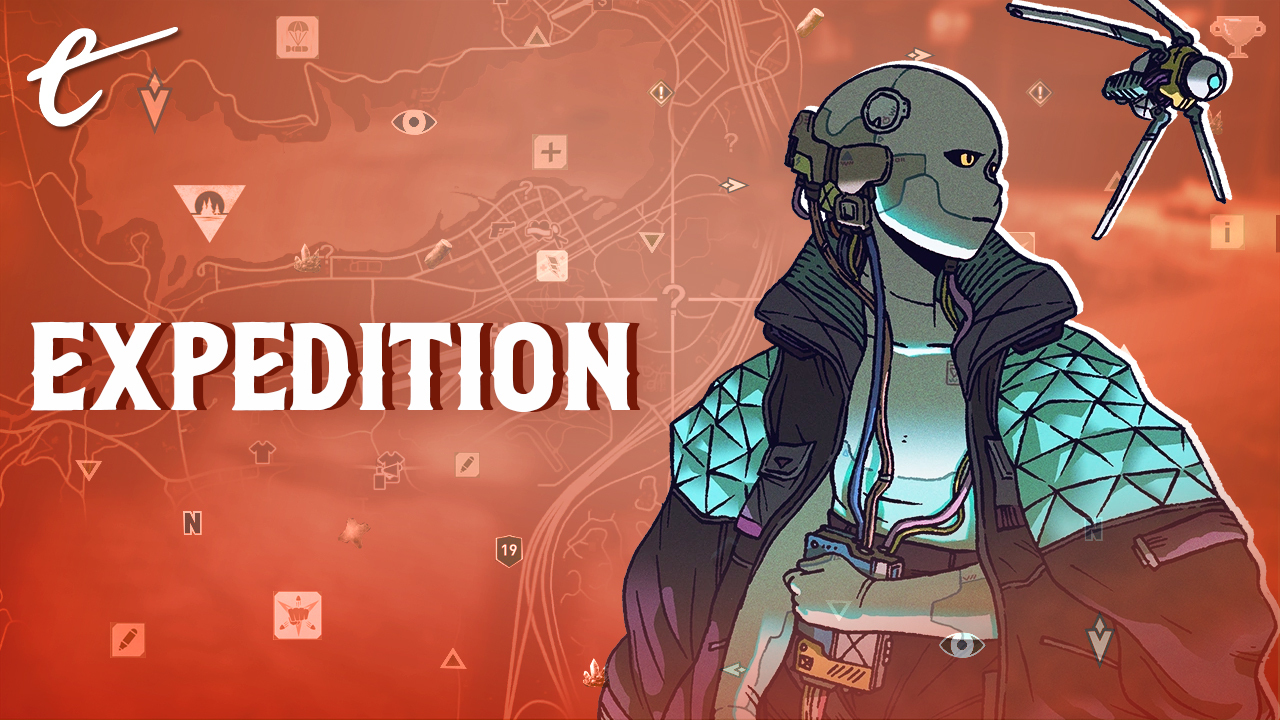Pretty much everyone who starts Citizen Sleeper is familiar with the anxiety and dread of the early game, seeing your Sleeper character’s energy and the condition of your artificial body slowly drain as you try to scrape together enough cryo for the cheapest meals you can find. But while you can build your own skills and capabilities up, your real salvation on the station are the characters you’ll meet who do what they can for you and vice versa. As you meet more denizens of Erlin’s Eye, you’ll have built your own personal web of friendships, rivalries, and both fulfilled and broken promises aplenty along the way.
My Extractor was finally starting to gain their footing on the Erlin’s Eye station. Through skill upgrades, I was capable enough as an engineer and cargo hauler to get some decent jobs and more than a couple chits to scrape together to afford delectable fried mushrooms consistently, while also keeping my condition maintained to maximize my daily actions. I had even passed the exciting milestone of finding new lodging for my Sleeper outside of the cold shipping container I crashed on the station in, in the form of the Hypha Commune in the Greenway. But just as I was getting comfortable, the stakes ratcheted back up tenfold as I continued to make connections and explore the station.
I overcommitted my character to two time-sensitive questlines, one involving supplying a ton of materials to refugees quarantined by the order of the higher powers in the station (which is the beginning of its stellar three-episode free DLC), and another helping the mechanic Bliss set up her repair yard in the Hub and do increasingly difficult jobs for different space vessels. Even though I was warned that the DLC quest would be demanding, I still went forward without thinking about how much these commitments would add up when I only had five actions a day, and that’s only if I kept my condition maxed out at no small cost.

Well, I really threw myself into the deep end there. Not only was I tasked with building a huge cache of food, water, and scrap for the refugees, but also implementing risky security breaches to help the ship actually reach them. As I was trying to fulfill these huge resource-gathering requirements, I heard from Bliss’ assistant Moritz that our first contract had failed, and I became wracked with guilt that I was leaving them hanging even if it was for a noble cause. I had my own money tied up in the repair yard and couldn’t just let myself abandon these people and let their clock run out completely either.
Not wanting to fully disappoint either group led to a pretty poor performance for the refugees. I had a great scrap hookup and eventually managed to purify some water as well, but I absolutely flopped on the farming when I forgot to return to harvest the crops I had cultivated. I also only managed to pull off a couple of the security maneuvers, so our allies didn’t have a straight shot to even get the supplies over. I ended up getting an ally, Eshe, arrested but at least successfully got some meager comforts to those that needed them.
I felt like a huge failure going into the second episode of the DLC questline and nearly let the repair bay fall into obscurity before saving it with some final contracts, but I ultimately appreciated the messy situations Citizen Sleeper let me get entangled in. You can feel a little infallible in certain role-playing games, but you can’t really grind your way out of a sticky situation in Citizen Sleeper. You can work slower and more methodically, looking for the optimal place to spend your actions and investing in skills to reroll less useful dice values, but you’ll inevitably be faced with challenges you didn’t build for and have to deal with them with whatever you’ve got.

As you explore more of Citizen Sleeper, you’ll realize that rolling a 1 in this game isn’t as devastating as a critical failure in Dungeons & Dragons, for example. A nuance I came to love in the game’s design was that high d6 dice rolls, which represent the actions you can take every day, aren’t what you always need depending on the system you’re engaging with. While carrying out most ordinary actions, a higher dice value plus your relevant ability modifier will increase the odds of a neutral or positive outcome, but this is flipped on its head when hacking various points in the station’s electrical network. Hacking requires a fixed dice value, with a majority of them being 1s and 2s. Small considerations like this help you not always feel cornered into swallowing negative outcomes.
But even with this capacity for failure always present, I never felt compelled to quit or wished that I could turn back time on a mistake. Life still goes on in the Eye even if you lose out on an experience point here and there for failing a certain Drive. You’re not being graded on an F-through-S scale here, and my bumps in the journey made the playthrough feel even more unique to me. Part of me does wish I hadn’t rushed so much and approached each day more strategically, but I liked exploring the character tensions that bubbled up while trudging on in a quest after this pretty major failure, bolstered by the excellent writing at pretty much every moment in the game.
Towing such a fine line between the stresses and pressures of the bleak capitalist system you have to survive in and other moments of comfort and connection with this world made Citizen Sleeper feel like one of the most genuine life sims I’ve ever played. Even though I did need rewards and money to get by, I still felt compelled by my favorite character’s Drives even when I wasn’t sure they’d have much to offer me in return, just so I could have more chances to engage with them. With the release of yet another DLC episode at the end of March, there’s no better time to immerse yourself in this incredible game if you haven’t yet.





